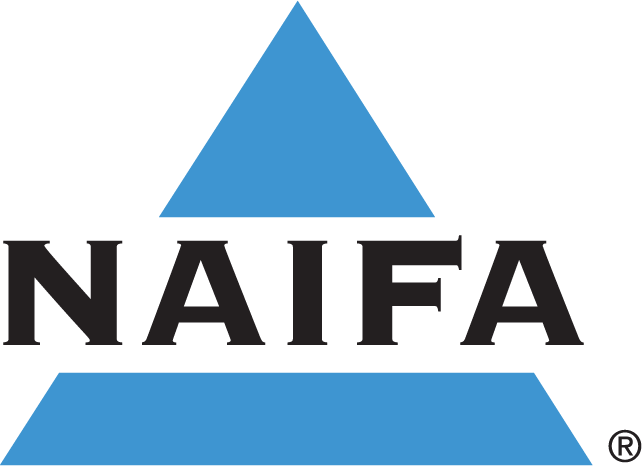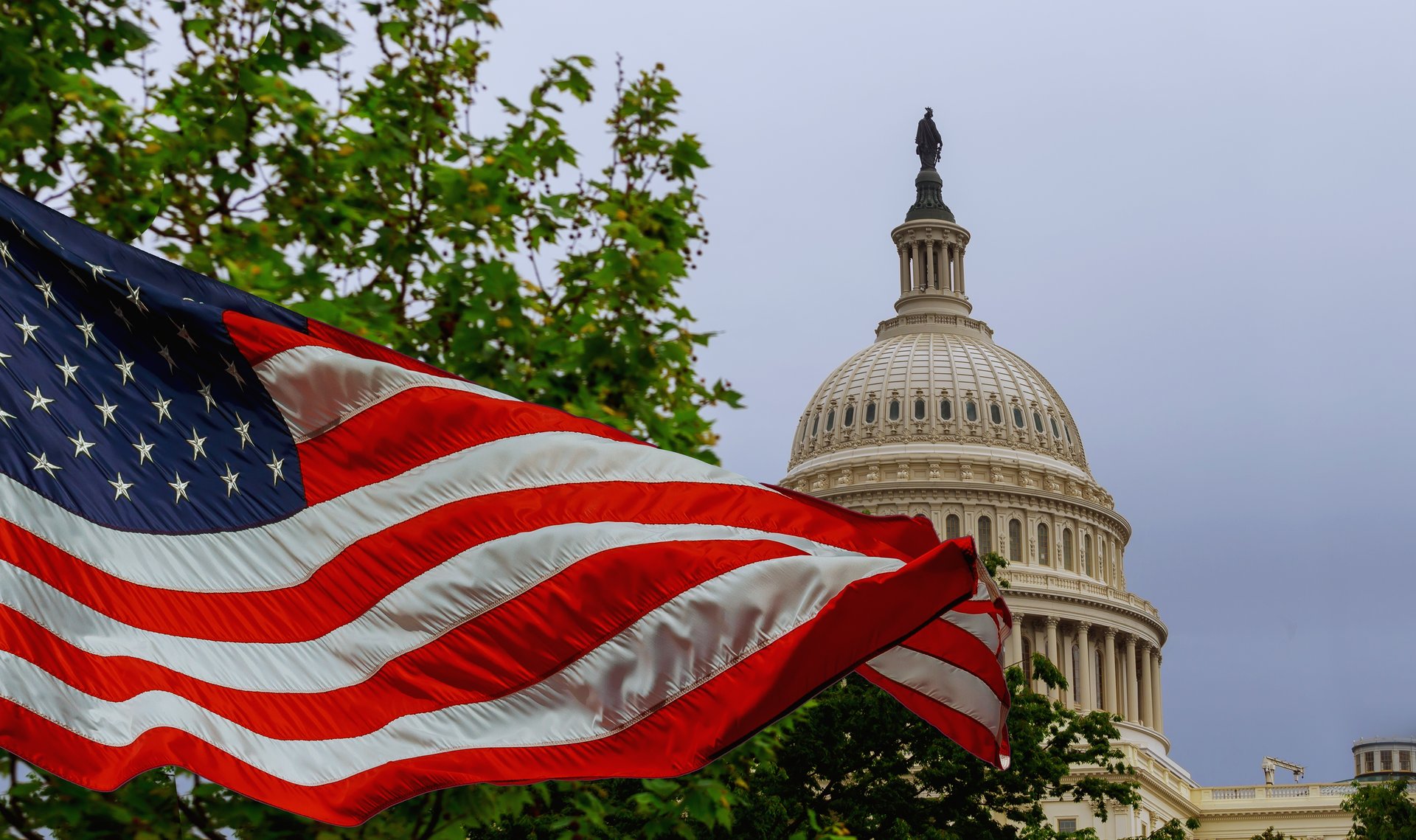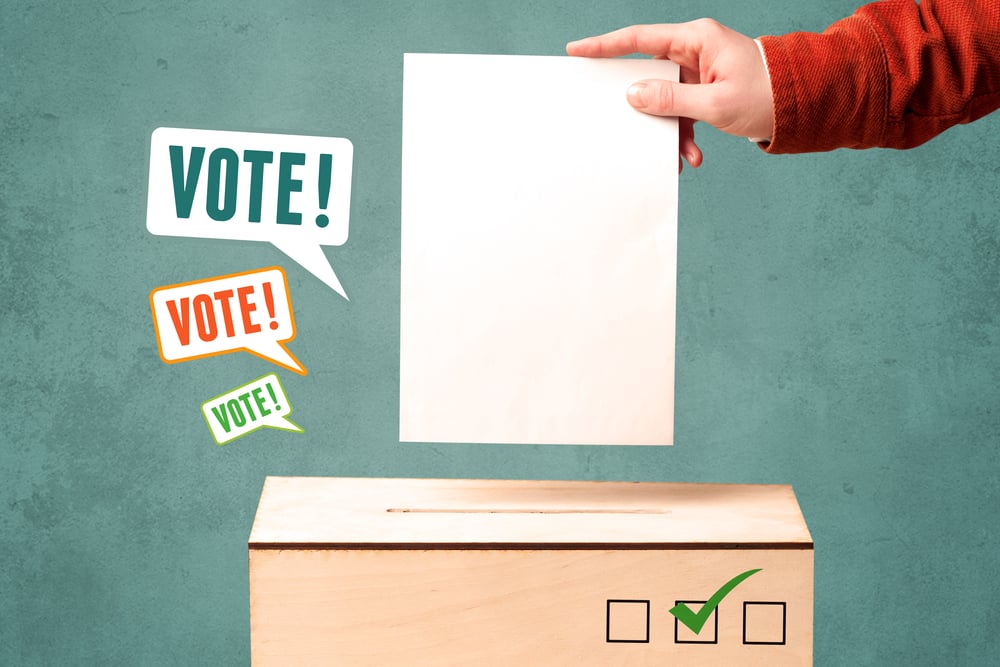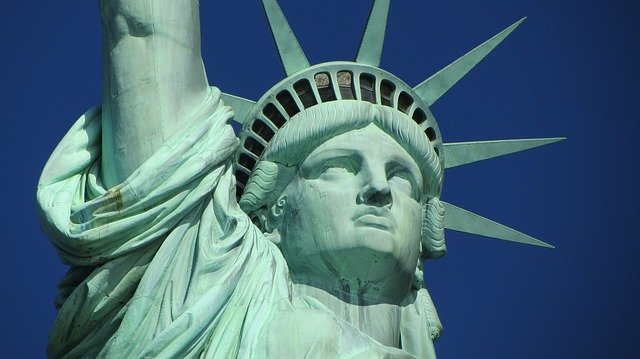On Sunday, March 29th, President Donald Trump extended his coronavirus guidelines for America, announcing 30 Days to Slow the Spread, effectively extending the minimum time for most Americans to remain at home until April 30th.
As COVID-19 continues to impact the country, we have seen almost unprecedented levels of bipartisan cooperation at the federal level. Congress has taken swift action to provide aid to small businesses and Americans who have been impacted by this pandemic, and NAIFA’s government relations team has been working with members every step of the way to provide input.
States too have been scrambling to avoid COVID-19 related fallout. Governors have issued stay-at-home orders and legislative sessions have postponed or adjourned early to better avoid spreading disease among members.
With COVID-19 causing drastic changes to the way we live and do business it is easy to forget that we are currently in the middle of a presidential primary. Several states have begun to postpone their primary elections to ensure that voters and volunteer poll workers need not risk their health coming to a polling station. Primary suspensions have been tracked by the National Conference of State Legislatures, which has been continually updating a list of the remaining primaries on its website. That list can be accessed HERE.
Currently, 15 states have delayed their primaries (Alaska, Connecticut, Delaware, Georgia, Hawaii, Indiana, Kentucky, Louisiana, Maryland, New York, Ohio, Pennsylvania, Rhode Island, West Virginia, and Wyoming). Six of these states have moved their primary to June 2nd, bringing the total number of states holding a primary on this date to 10, and effectively creating the largest delegate haul since Super Tuesday on March 3rd. Whether states will delay their primaries again, only time will tell.
While some states were able to act quickly to suspend voting, officials in Wisconsin found themselves unable to react fast enough to enact delays for their April 7th voting deadlines.
Wisconsin’s situation is particularly interesting because Wisconsinites are not just voting in the presidential primary, they are also participating in a spring general election with over 3,800 local offices and a state Supreme Court seat up for grabs. This unique circumstance has led to a somewhat chaotic saga of eleventh-hour action, including a special legislative session, executive action (overturned by the Wisconsin State Supreme Court), and the involvement of the U.S. Supreme Court.
The disarray in Wisconsin resulted in neither delays nor extended deadlines, and Wisconsinites who did not give themselves enough time to apply for and receive an absentee ballot will ultimately have to go to a polling place if they wish to vote.
As this pandemic runs its course, the potential remains for states to find themselves in a situation resembling Wisconsin’s elections debacle. Because we cannot know what the primary or general election landscape will look like throughout the COVID-19 pandemic, it is essential to note that states typically provide alternatives to in-person voting.
Every state has provisions allowing voters to request absentee ballots. Many have even begun looking to absentee ballots as a means of keeping people from gathering at polling locations. Ohio, for example, acted quickly, if somewhat chaotically, to close polling stations and pass legislation extending the deadline for their primary while also allowing for greater access to absentee ballots while limiting in-person voting.
All 50 states provide absentee ballots, but 17 require voters to present a valid excuse before they can receive their ballot. Acceptable reasons typically include: emergency medical issues, being out of the country on election day, being older than a certain age, working during voting hours, being a student, being a poll worker, religious exemptions, being incarcerated (but still eligible to vote), is a participant of an address confidentiality program, or jury duty.
The remaining 33 states (and the District of Columbia) either allow for absentee voting upon request with no excuses or conduct elections by mail only (see below).
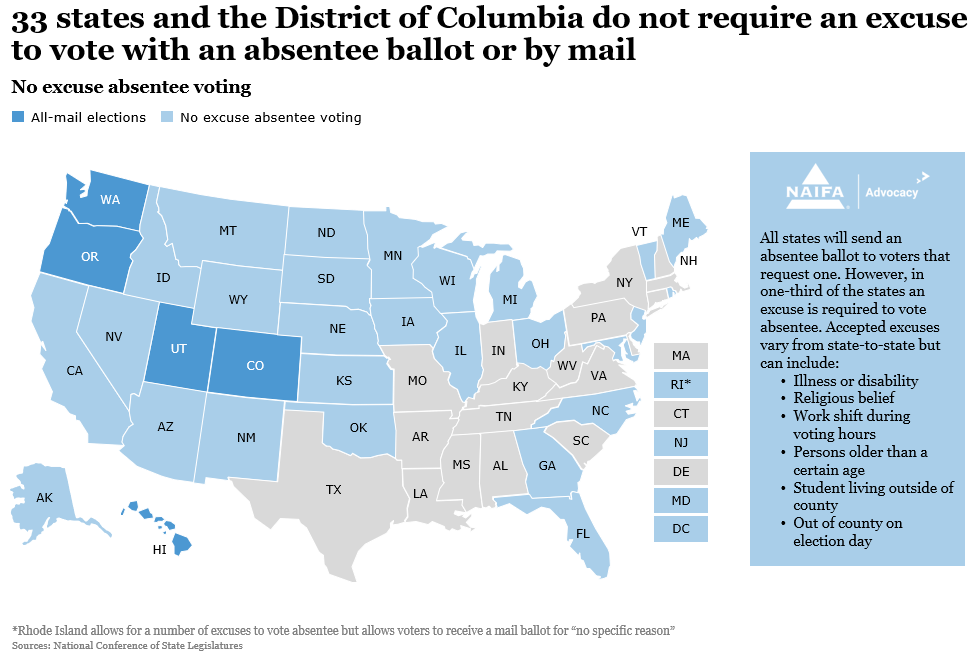
While absentee ballots may be a common occurrence across the U.S., 21 states have taken the mail-in voting the concept even further. They already have provisions on the books allowing certain elections to be conducted entirely by mail. Most of these states exclude federal and general elections from mail-in voting. However, five states (Washington, Oregon, Utah, Colorado, and Hawaii) make an exception and allow mail-in voting for all elections in all districts (see below).
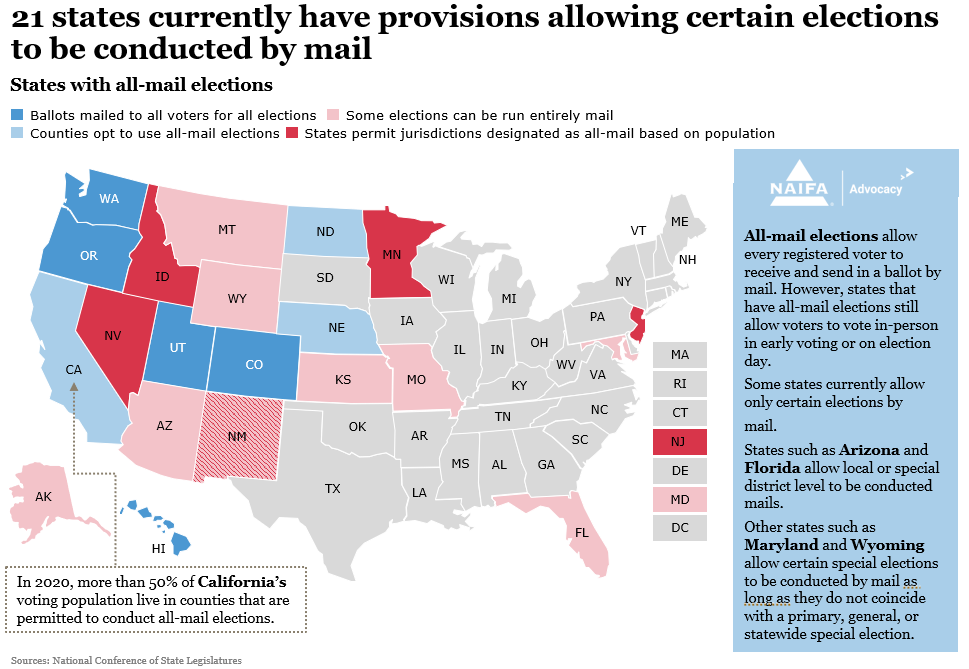
As things stand now, the Director of the National Institute of Allergy and Infectious Diseases (NIAID), Dr. Anthony Fauci, is anticipating that the U.S. will see another outbreak of COVID-19 this coming fall.
Fauci is confident that, if the U.S. does see another COVID-19 outbreak, things “are going to be very, very different.” Still, given the transmissibility of the disease and the measures some state governments have taken to dissuade voters from voting in-person, a fall outbreak of COVID-19 raises some questions about the look of the November 3rd general election.
States are acting quickly to ensure public health and safety standards, and we are watching in real-time as the way we vote is changed to meet those standards. Federal legislators, such as Sens. Klobuchar and Wyden, have already introduced legislation that would require states to establish contingency plans for federal and general elections in cases of natural disasters and other emergencies.
The COVID-19 pandemic has brought about drastic changes in America and across the globe. The way we do business has shifted almost overnight. Politicians are putting aside partisan rancor to push for the best interests of their constituents in this trying time, and our states are even being forced grapple with making changes to how we conduct our elections – but we cannot allow this disruption to distract us from civic engagement.
NAIFA continues to work to ensure that our members’ interests are at the top of legislators’ minds, and we encourage members to do the same. In this trying time, legislators on the state and federal levels will be looking to their constituents for thoughts and input.
For more information on NAIFA’s advocacy efforts and for details on how you can offer yourself as a resource to your legislators and your community, please visit our advocacy page HERE. Additionally, NAIFA has compiled a comprehensive list of resources to help members keep themselves, their family, and their clients safe and healthy. Our COVID-19 resource page is available to all and can be accessed HERE.
